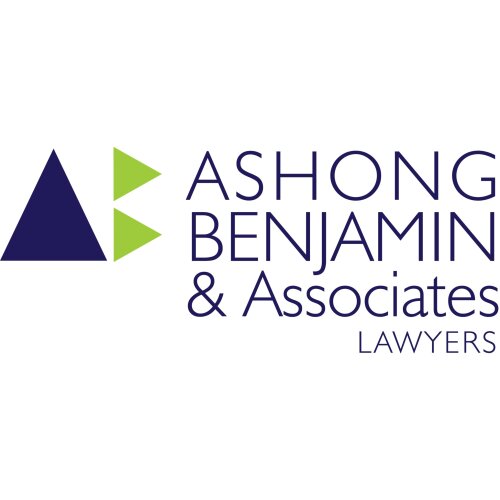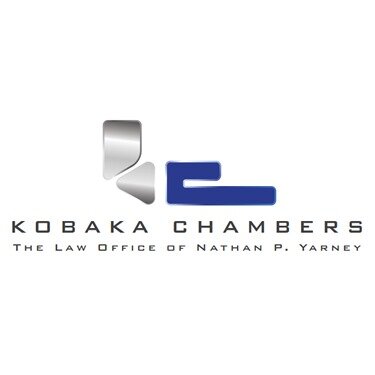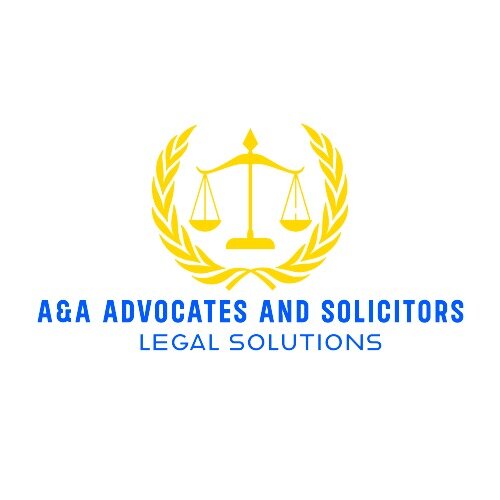Best Wage & Hour Lawyers in Ghana
Share your needs with us, get contacted by law firms.
Free. Takes 2 min.
Or refine your search by selecting a city:
List of the best lawyers in Ghana
About Wage & Hour Law in Ghana
Wage and hour laws in Ghana are primarily governed by the Labour Act, 2003 (Act 651). These laws are designed to regulate the wages employees are paid as well as the number of hours they are required to work. Ghanaian law mandates minimum wage standards, working hours, overtime pay, rest periods, and other aspects of employment to ensure fair compensation and promote worker welfare. Employers are expected to comply with these regulations as part of their responsibilities, and employees have the right to seek redress if these standards are compromised.
Why You May Need a Lawyer
There are multiple situations where people may need legal assistance related to wage and hour issues in Ghana. Common scenarios include disputes over unpaid wages, wrongful deductions, employer non-compliance with minimum wage laws, disputes over overtime pay, and unfair treatment regarding hours worked. Additionally, complex cases involving employment contracts or collective bargaining agreements may require legal interpretation and representation. A lawyer can provide guidance, represent you in disputes, and help ensure that your rights as an employee are protected.
Local Laws Overview
The key aspects of local laws relevant to wage and hour issues in Ghana include:
- Minimum Wage: The government periodically reviews and sets a national daily minimum wage. Employers must comply with the current minimum wage rates.
- Working Hours: The standard workweek in Ghana is 40 hours, typically spread over five or six days. Employers may not exceed this without providing appropriate compensation.
- Overtime: Employees who work beyond the standard hours are entitled to overtime pay at a rate specified by law or agreed upon in contracts.
- Rest Periods and Leave: Employees are entitled to daily rest periods, annual leave, and paid public holidays. Specific leave entitlements are also provided for maternity, sick leave, and other circumstances.
- Employment Contracts: Employers must provide written employment contracts, outlining wages, working hours, and other terms.
Frequently Asked Questions
What is the current minimum wage in Ghana?
The minimum wage in Ghana is subject to regular adjustment by the government. As of the latest update, workers should receive at least the set national minimum wage per day.
Are part-time workers entitled to the minimum wage?
Yes, part-time workers are entitled to a pro-rata minimum wage based on the number of hours they work weekly.
How is overtime pay calculated?
Overtime pay is typically calculated at a higher rate than regular pay, often stipulated in employment contracts or collective agreements. By law, the minimum overtime rate should exceed the regular hourly wage rate.
Can my employer change my working hours without consent?
An employer generally should not make significant changes to an employee's working hours without their consent unless such changes are justified by contract or collective agreement clauses.
What should I do if I am not paid my wages on time?
First, address the issue with your employer or HR department. If unresolved, you may need to seek legal advice or report to labor authorities.
Are there laws on mandatory rest periods during workdays?
Yes, Ghanaian law provides for rest periods during workdays to promote employee welfare and efficiency. Regular breaks must be provided, especially for long work hours.
What are my rights regarding annual leave?
Employees are entitled to annual paid leave as stipulated by the Labour Act, with duration typically specified contractually or by law.
Are domestic workers also covered under wage and hour laws?
Yes, domestic workers in Ghana are covered under wage and hour laws and are entitled to minimum wage and standard working conditions.
Can my employer terminate my employment for demanding owed wages?
Retaliatory termination for claiming rightful wages is unlawful. Employees facing such threats should seek legal assistance or report to labor authorities.
What is the role of the Labour Commission in wage and hour disputes?
The Labour Commission acts as a mediator and adjudicator in resolving labor disputes, including those related to wages and working conditions. They provide a platform for both employers and employees to present their cases.
Additional Resources
For further assistance, individuals can reach out to the following:
- The Ministry of Employment and Labour Relations: Provides guidance on employment standards and policies.
- The National Labour Commission: Handles complaints and disputes regarding labor issues.
- Trade Unions: Such as the Trades Union Congress to support collective worker rights.
- Legal Aid Scheme: Offers legal assistance to individuals unable to afford private legal services.
Next Steps
If you require legal assistance in wage and hour matters, consider the following steps:
1. Gather Information: Document all relevant information, including employment contracts, pay slips, and communications with the employer.
2. Consult HR or Management: Attempt to resolve issues internally before pursuing legal action.
3. Seek Legal Advice: If unresolved, consult a lawyer specializing in employment law to assess your case and explore potential legal avenues.
4. Contact Relevant Authorities: If necessary, report concerns to the appropriate governmental body, such as the Labour Commission.
5. Consider Mediation: Mediation can be a less formal, more amicable way to resolve disputes without requiring litigation.
Lawzana helps you find the best lawyers and law firms in Ghana through a curated and pre-screened list of qualified legal professionals. Our platform offers rankings and detailed profiles of attorneys and law firms, allowing you to compare based on practice areas, including Wage & Hour, experience, and client feedback.
Each profile includes a description of the firm's areas of practice, client reviews, team members and partners, year of establishment, spoken languages, office locations, contact information, social media presence, and any published articles or resources. Most firms on our platform speak English and are experienced in both local and international legal matters.
Get a quote from top-rated law firms in Ghana — quickly, securely, and without unnecessary hassle.
Disclaimer:
The information provided on this page is for general informational purposes only and does not constitute legal advice. While we strive to ensure the accuracy and relevance of the content, legal information may change over time, and interpretations of the law can vary. You should always consult with a qualified legal professional for advice specific to your situation.
We disclaim all liability for actions taken or not taken based on the content of this page. If you believe any information is incorrect or outdated, please contact us, and we will review and update it where appropriate.
Browse wage & hour law firms by city in Ghana
Refine your search by selecting a city.

















